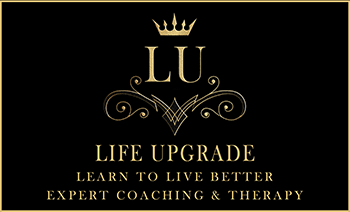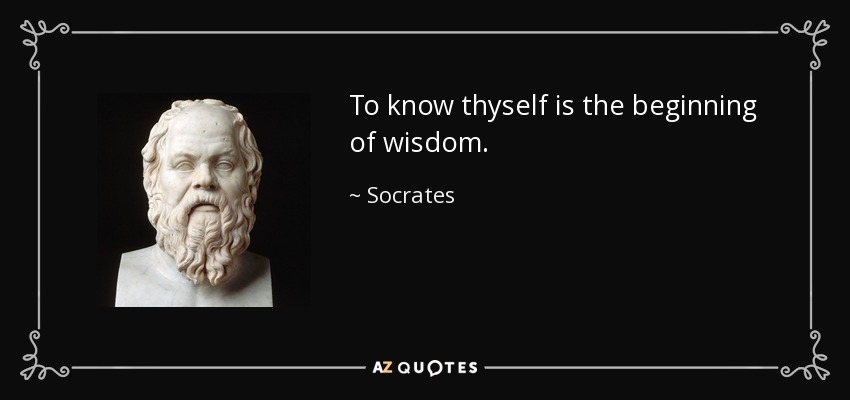HOW SELF AWARE ARE YOU?
How well do you understand yourself? What makes you feel the way that you do, your motivations behind your behavior? Or do you live your life in a reactive state, one knee-jerk reaction after another, feeling out of control – a passenger on a runaway train?
The problem with lacking self- awareness is that you stay stuck, often unhappy, unable to grow or move forward with clarity. Another unpleasant side-effect is that you are also not aware of how your knee-jerk reactions affect other people and your relationships, until its too late, adding to the chaos of your life. Shutting down and not responding at all is also a knee jerk reaction – just on the opposite end of the spectrum. Your silence and avoidance can be just as damaging as a reactive outburst.
When you learn to better understand yourself, your behaviour and emotions, you can act, rather than react. This puts you in the control seat. You can choose which track you want to run your train on. People who are self-aware experience:
WHAT ARE THE BENEFITS TO BECOMING SELF-AWARE?
- Positive self-development and a growth mindset
- Positive self-esteem
- Better self-control
- More effective communicating
- Make sounder decisions
- Better and stronger relationships as a result of being able to recognize other people’s needs and feelings, and understanding the impact of your behaviour on others,
- More confidence
- Better performance
- Better creativity
If you want the power to change, grow, and create the life you want, you need to become self-aware. If you don’t understand who you are and what your thought processes are, you can’t change anything.
HOW DO YOU DEVELOP SELF AWARENESS?
1. Understand that you are not your thoughts. You are the one observing your thoughts. When you learn to observe your thoughts from a separate place of non-judgement, you are in the position to start understanding more about yourself. When you are not observing your thoughts, you are simply being swept away on the river of thoughts, being your thoughts, reacting instead of acting. Stepping aside to that place of neutrality helps you get out of that river and gain perspective. Then you are empowered to and move forward in an enlightened and deliberate, self-controlled manner. It puts you in a position to choose how to respond and act.
2. There is a difference between being self-aware and being a self-analyser. Self analysers tend to get caught up in negative thinking patterns, self-criticism and are more prone to feeling anxious and depressed. Don’t get caught up in negative thinking patterns, asking why. Self-awareness It means understanding what made you make those mistakes, what led you to those choices, and how to best to mitigate the consequences. You can achieve powerful insights by asking better questions. a. “Why” is generally not a good question to ask yourself because it often leads to negative, problem-based thinking. “Why am I so miserable? “
b. The question “What?” tends to be more objective and empowers you to think in a broader sense and a more solution-focused manner. “What am I reacting to that causes me to feel this way? What can I do to change this.?”
c. Beware of Negative questions – Flip them: “What if I succeed” vs “What if I fail”
Now that you have a better understanding of the Mechanics of Self-Awareness, you can put it into practice.
HOW TO PRACTISE SELF-AWARENESS
1. Create Me time – specifically for engaging yourself to do mindful meditation. Make sure you are free from distraction and can spend a few minutes simply observing your flow of thoughts without judgement. You can look for patterns in your processing, become aware of default negativity, and simply watch without becoming involved.
2. During the day, practice being mindful by just watching your inner state respond to different situations. Do this from a neutral place – don’t judge or evaluate – just observe. Its how you are getting to know yourself.
3. Progress journals – these work better when written by hand rather than being done digitally. It helps process your thoughts, and monitor your progress and inner states and responses. This is why I always have my clients send me their daily Progress Journal updates. It’s a powerful tool to keep you focused on what you are wanting to achieve and what we are working towards as a team. 4. Receive feedback from others to gain a new perspective.
RELATIONSHIP MINDFULNESS
To really get the benefits of this new skill you are developing, practice relationship mindfulness: Be it your best friend, lover, spouse, or family, it will benefit the relationship.A great way to do this is to practice mindful listening:
1. Pay attention to the person speaking to you, observe their body language, choice of words, tone, facial expression, and emotion
2. Observing your inner responses, feelings, and thoughts to what they are saying.
3. Have regular discussions/feedback on the relationship. This helps you keep your finger on the pulse of your relationship and helps prevent things from falling between the cracks. It helps you deal with issues as they arise, preventing them from becoming huge problems.
4. Reflect on your part in the other persons behaviours/thoughts/reactions.
HERE IS AN EXAMPLE OF HOW SELF-AWARENESS CAN IMPACT YOUR LIFE:
Sally is feeling very unhappy in her relationship with Bob, and she doesn’t know why. When she observes her feelings and asks: “What factors are contributing to this feeling?”, she realises that when Bob does not respond immediately to her WhatsApp messages, it makes her feel unloved, ignored, rejected and unimportant.
She then has a chat with Bob about it and receives the feedback that she is always in his thoughts, but work demands and the fact that “Life Happens” mean he is unable to respond immediately or frequently to her messages, although he would love to.
Sally then reflects on this again, armed with a new perspective from the feedback, and realised that she was making assumptions about how Bob feels about her, none of which were based in fact. She also recognises that it’s a pattern she repeats in many different situations with other people.
Thereafter, the next time Sally’s feels the familiar sting of rejection, she is able to simply observe it, understand it as an assumption, correct her perspective and can confidently move forward feeling secure.
Self-awareness is a never-ending journey, because you are an ever-evolving being.

